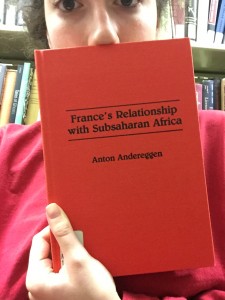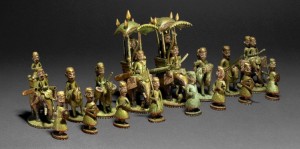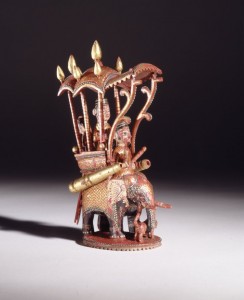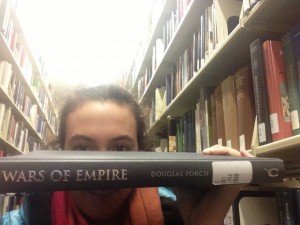
Andereggen, Anton. France’s Relationship with Subsaharan Africa. Westport: Praeger, 1994. Print.
To find this book, I looked up “colonialism” and “Africa” and was originally looking for a different book. However, while I was looking for the other book, I came across this one, which seemed to offer a better insight into things that we have discussed in class. The book was in a section that was entirely about Africa. There were a lot of books on the South African apartheid, which I know we will be discussing in class in the next few weeks. Other books were about the Rwandan genocide, and the history of West Africa. Moreover, all of the books touched on some part of history in Africa. They were all found in the DT 400s section of the upper level of Skillman. I decided on this one, however, because it combined colonialism, which we have spent so much time on with Africa, but discussed it in a context that was more modern than what we have learned in class so far.
The book caught by eye because it specifically discusses the connection between a colonial power and its influence on the region in which it colonized. I also liked it, as I said before, because it was a more modern take on the subject and the lasting impact on the colonial powers.
The chapters in the book are:
1. History of French West Africa Until World War II; 2. History of French Equatorial Africa Until World War II; 3. World War II and Reorganization; 4. Loi-cadre Reforms and Charles de Gaulle’s Return; 5. Decolonization; 6. Independence; 7. General de Gaulle and His Successors; 8. Cultural Considerations; 9. Economic Ties; 10. Historical Perspectives on How the French View the Africans
The book discusses how the French wanted to acquire part of Africa in order to restore its pride that was lost during the Franco-Prussian war. Acquiring the overseas empire was beneficial to the French because of the goods they could gain. Ultimately, when they colonized and created the empire, the most important things in the mind of the French were politics, financial gains and national ambitions. Although France still holds a significant amount of power in the region (through economic, political, cultural and social ties), the book discusses the changes that were made to the empire as a result of big wars and events that occurred in the world and how that impact the French’s control over sub-saharan Africa.



